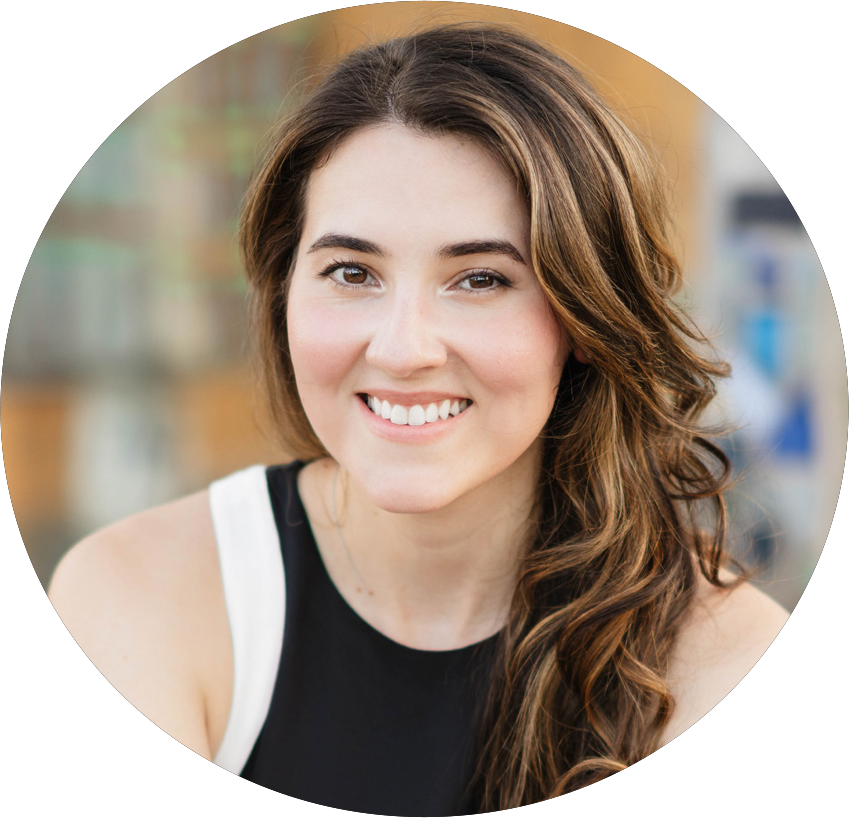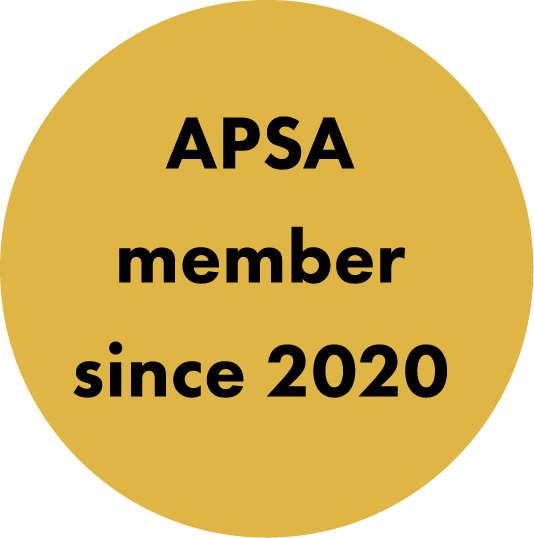How did you learn about APSA? When did you become a member of APSA, and what prompted you to join?
I learned about APSA through my department—the political science department at the University of Houston—during my first semester of graduate school. That was in the fall of 2019. My advisor, Lydia Tiede, encouraged me to become a member so I could be aware of events, talks, grants, and other information that comes through the APSA listservs and sections. I ended up becoming an APSA member about a year later, in 2020. At the time, I was unsure of whether I wanted to pursue academia after graduation, so I thought it would be a useful way to learn more about the profession in general and opportunities to grow within the profession.

How have APSA membership and services been valuable to you at different stages of your career?
So far, the most valuable aspect of APSA membership has just been the sheer amount of information that comes through the section listservs. There are so many opportunities to connect with others, share research, and learn new things. At times, the volume of emails can feel overwhelming, but it’s encouraging to know that there is something for everyone. By becoming an APSA member, I’ve also had the opportunity to make friends outside of my institution and find “my people.” Just by taking advantage of all the information that has come through, I’ve been able to participate in many incredible programs that have helped me develop as a researcher. Establishing a good network of friends, colleagues, and mentors has been the most useful for me as a graduate student and will certainly be useful as I transition to the next stage of my career.

You’ve participated in both the Public Scholarship Program and Fund for Latino Scholarship. Can you talk about your experience with these programs and how they have benefited you as a PhD Candidate?
I have benefited financially and professionally through the Public Scholarship Program and the Fund for Latino Scholarship. I was fortunate to be able to use the stipend that I received through the Public Scholarship Program to fund my attendance at conferences like APSA and WPSA later that year, both of which have been invaluable. I also improved my writing substantially through the Public Scholarship Program. I received personalized feedback on my writing from the managing editor of APSR, which was useful. The program has also made me more cognizant of how to make my own work and writing more appealing to audiences outside of the immigration, race, and ethnicity subfields. I think now, as a result of the program, I think about the framing of my research questions more critically than I did before. I would like to think that now my papers are a little more coherent.
Like with the Public Scholarship Program, I used the Fund for Latino Scholarship to fund my attendance at SPSA later that academic year. At that particular SPSA, I presented co-authored work with some of my colleagues at UH, a mentor that I met from another APSA program (ICER), and met a new set of co-authors. It was an extremely fruitful conference, where I received comments on several ongoing projects and generated new projects. The Fund for Latino Scholarship also helped me identify junior scholars at other institutions who were either interested in similar work, or came from similar backgrounds. Some of my fellow recipients are now friends and collaborators. The funding and professional development opportunities afforded to me by both programs came at a really critical time—right as I was about to go on the job market. As far as conferences are concerned, I connected with faculty that were on search committees or going to be on search committees, which gave me important insight on preparing for the market. The timing of my participation could not have been better.
Can you tell us about your professional background and your research?
Before I started graduate school, I worked at a nonprofit in the Houston area—BakerRipley—for over three years, where I was a Department of Justice Accredited Representative, or DOJ rep. In my capacity as DOJ rep, I legally represented individuals in their immigration cases. I saw first-hand how institutions affect people, and in turn, how people shape institutions. Many of my current research questions, including my dissertation, come from the experiences I had while working at BakerRipley. While I was there, I also worked on an initiative called Welcoming Houston, where community stakeholders came together to create a list of policy recommendations to make the city more inclusive of immigrants. We advocated to create a city-wide deportation defense program, which eventually was implemented. I was fortunate to work on the deportation defense team in my final year at BakerRipley.
Welcoming policies and city-level advocacy like this are the focus of my current research agenda. As part of my work, I try to understand the impact of these local policies. I argue that these policies provide the resources, skills, and networks for immigrants to participate politically. To understand this relationship, I’ve created a novel dataset that measures inclusion policies across the 100 largest cities across the US—inclusion policies similar to those proposed in the Welcoming Houston initiative. So far, I find that over time, naturalized immigrants vote more in cities with more inclusive policies. I would like to extend this work to think about how inclusive policies relate to a range of factors, such as health, well-being, education, and employment outcomes across other immigrant groups. Other current projects also stem from my work at BakerRipley. The nonprofit also has a civic engagement team, which focuses on turning low-propensity voters out to the polls. With a colleague at UH, Shana Hardin, I conduct GOTV field experiments to understand how we can improve voter turnout in Houston.
Which APSA programs or events would you recommend to people who are not members of the association, and why?
I would recommend any program or event that brings researchers together to exchange ideas—especially smaller events organized around subfields. My work is all the richer because of the many people that I have met through so many of these programs. I would venture to say that all of my work, from research to teaching, has benefited from knowing the people I have met through APSA programs. The most impactful programs for me were the Institute for Civically Engaged Research (ICER) and the APSA Virtual Meeting. Through ICER, I met like-minded researchers who care not only about moving the discipline forward but also about contributing to their communities. I was able to develop one of my first publications through the comments and mentorship I received both during and after the one-week program. With the help of previous ICER cohort members, I also created a new course on civically engaged research for undergraduates at UH. I count some of the people that I met through ICER as some of my biggest supporters and mentors outside of UH.
The APSA virtual conference and its corresponding workshops were also impactful because they placed me in community with other race and ethnicity scholars—like ICER, it was a program that introduced me to other like-minded scholars. It was easy to attend because it was virtual, and it enabled me to meet graduate students at other institutions at varying stages of their programs. After the virtual conference, I was invited to join a writing group created by some groupmates where I could further develop my work and receive the encouragement I needed. Because it was virtual, it was relatively costless to attend, but the payoff was huge since I now count many of the people that attended with me as great friends and writing buddies for life.
Is there anything else you’d like people to know about you or the work that you do?
I really love to meet new people and learn about all of the exciting work that others are doing, so I am grateful to be a member of APSA, which gives me an opportunity to do just that. I look forward to all the wonderful collaborations that will come my way because of APSA as I start a new chapter of my career. ■



